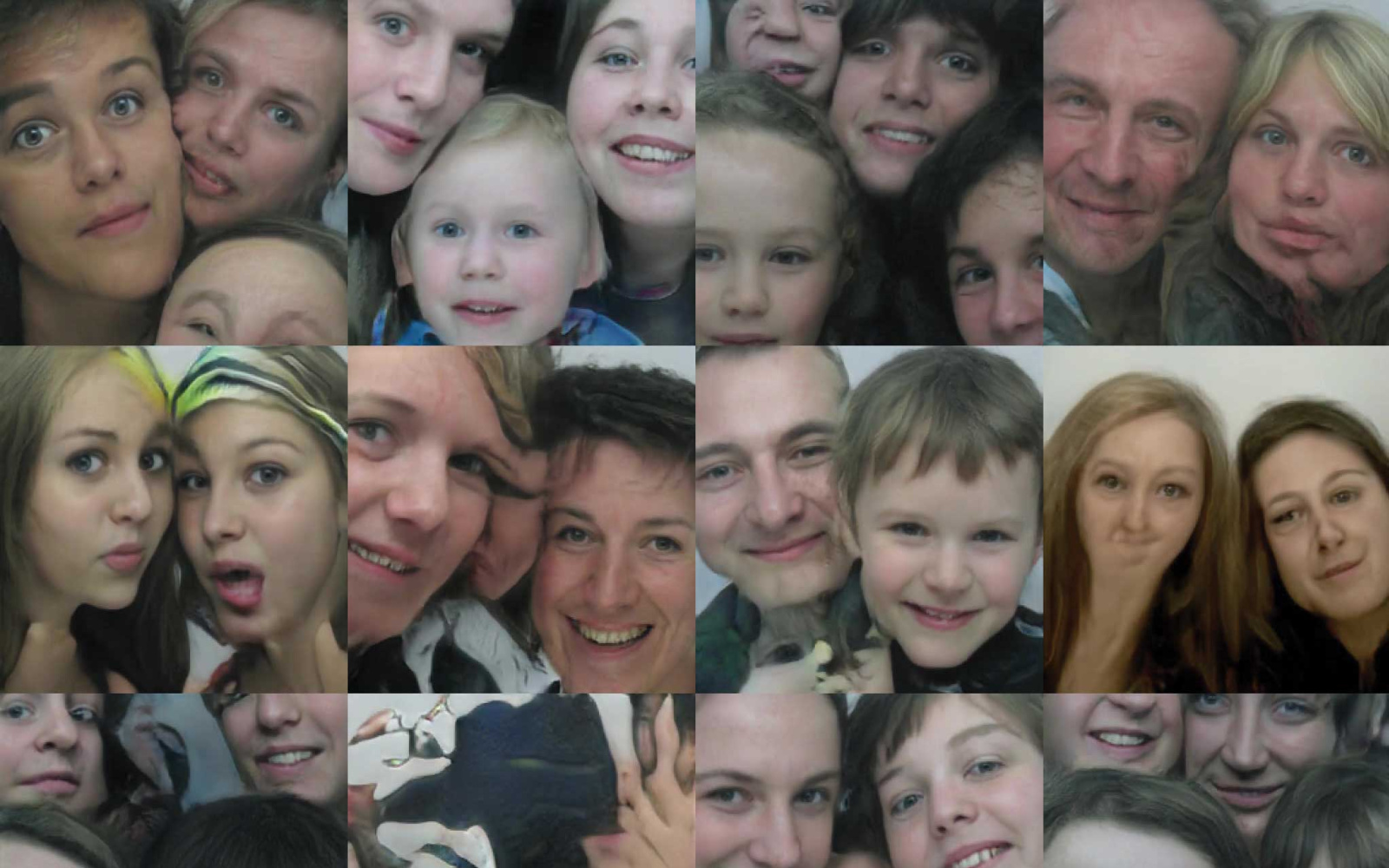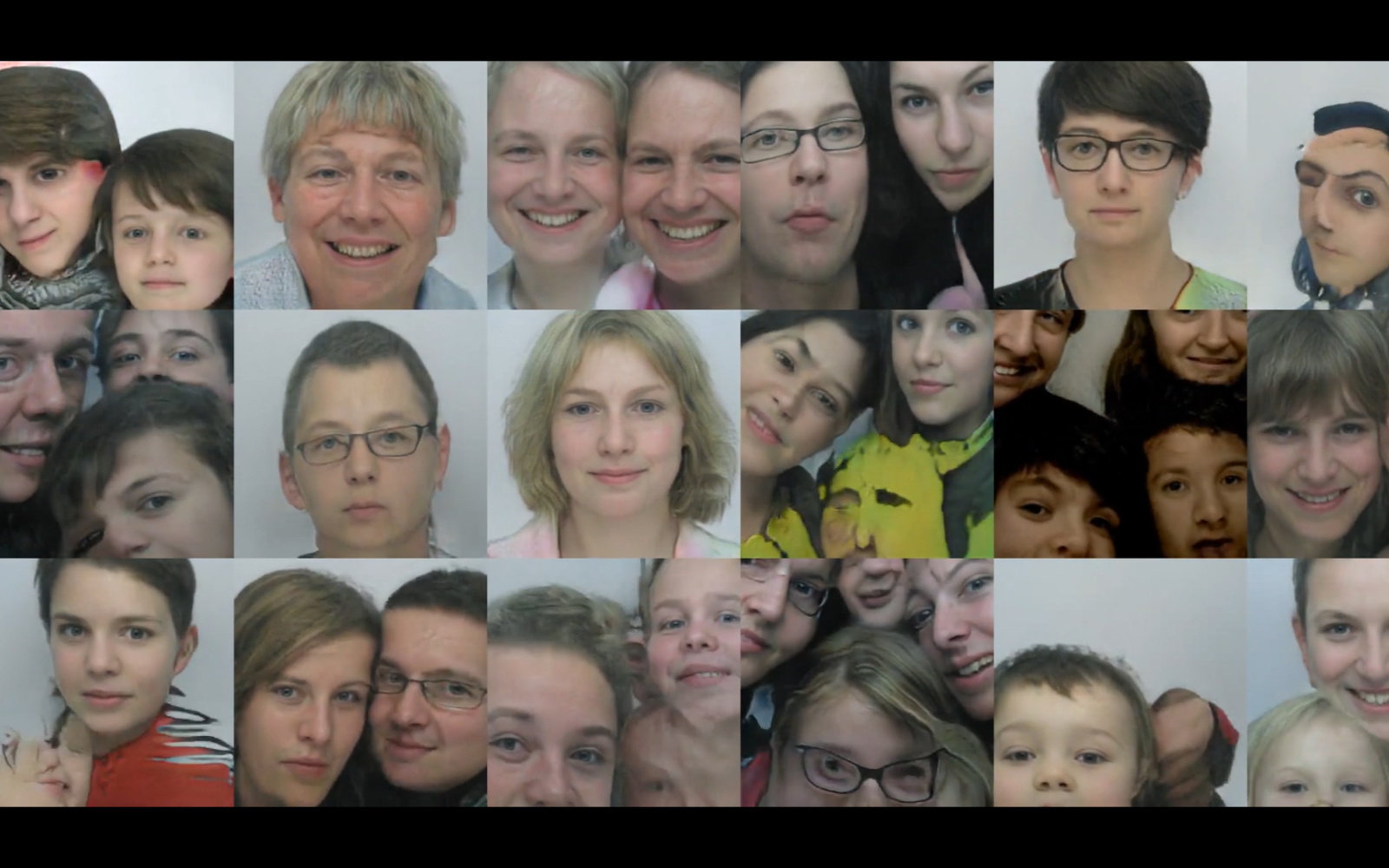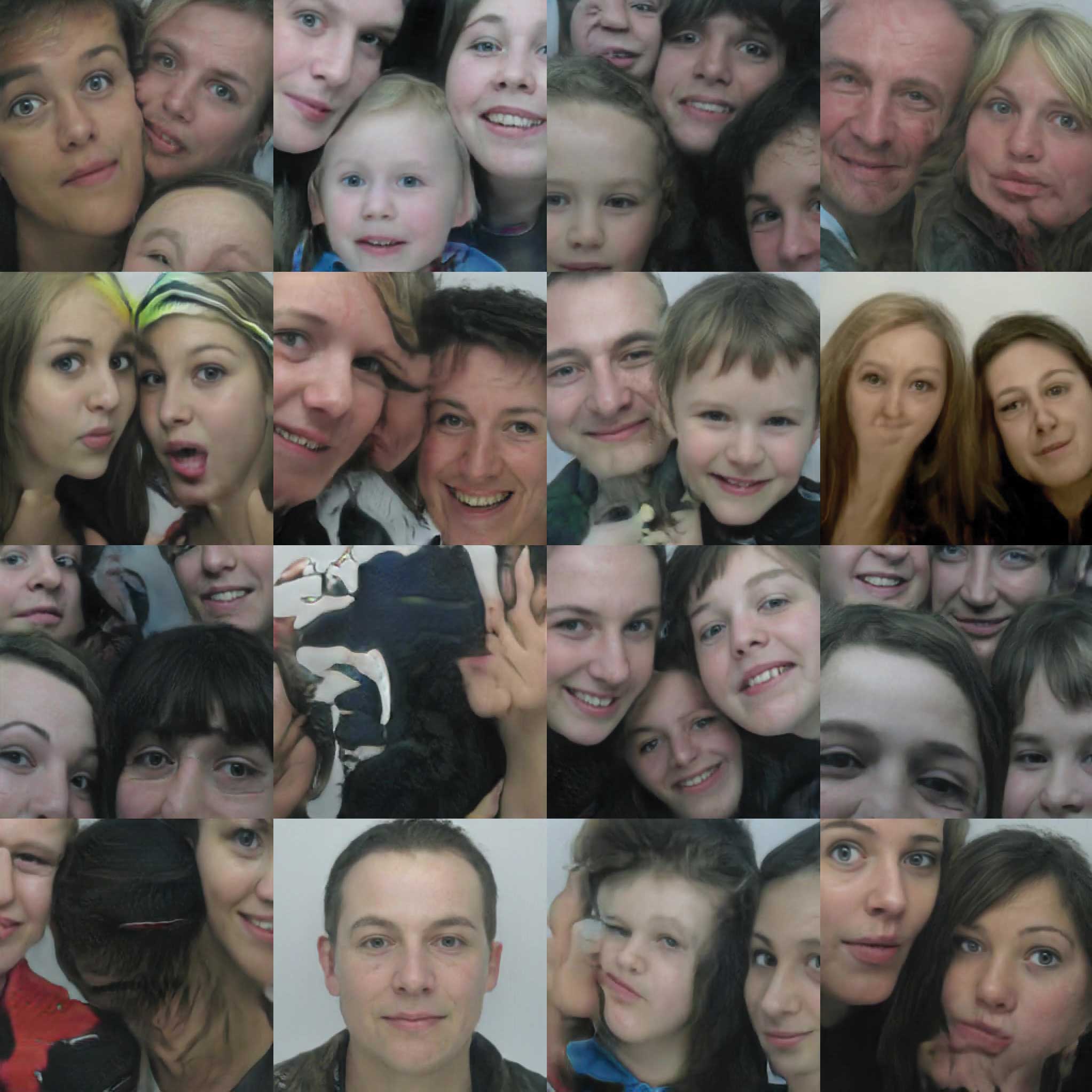FLICK_KAi
2018
- Title
- FLICK_KAi
- Year
- 2018
- Copy Number
- 219
- Medium / Material / Technic
- 360-degree video, based on the installation »FLICK_KA« (2007) by Peter Weibel and Matthias Gommel
At the exhibition from September 1, 2018 to June 2, 2019
Neural networks can learn to generate photorealistic images. Recent developments in machine learning show that in the future it will become increasingly difficult to distinguish whether images and videos are computer generated or real. Of particularly interest for this are Generative Adversarial Networks (GANs). Ian Goodfellow published a paper on GANs[1] in 2014, in which he describes how to use two neural networks to optimize each other. A generator network is trained with a data set of images that it tries to imitate. The generated images are shown to a discriminator network together with real images and the discriminator tries to distinguish whether the images are real or produced by the generator network. This interaction loop of trying to trick the opponent or revealing the fraud, respectively, helps both neural networks to optimize their capabilities to the point where it becomes difficult to distinguish the real images from the generated ones.
In the photo booth »FLICK_KA« in the ZKM foyer visitors have had their portraits taken over 50,000 times over the last ten years. These images were used as the training data set for the algorithm[2][3], which can now generate completely synthetic images from the combined characteristics of everyone who ever took a photo there.
Audiodesign: Manfred Hauffen
FLICK_KAi
[1] Ian J. Goodfellow, Jean Pouget-Abadie, Mehdi Mirza, Bing Xu, David Warde-Farley, Sherjil Ozaier, Aaron Courville, and Yoshua Bengio, “Generative Adversarial Networks,” in: ArXiv, 2014. Available online at: https://arxiv.org/abs/1406.2661, accessed 08/17/2018.
[2] Tero Karras, Timo Aila, Samuli Laine, and Jaakko Lehtinen, “Progressive Growing of GANs for Improved Quality, Stability, and Variation,” in: ArXiv, 2017. Available online at: https://arxiv.org/abs/1710.10196, accessed 08/17/2018.
[3] Tero Karras, “Progressive Growing of GANs for Improved Quality, Stability, and Variation“, (2018), Available online at: https://github.com/tkarras/progressive_growing_of_gans, accessed 11/05/2018.


